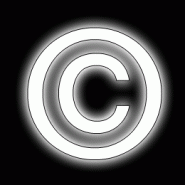Has the CAA’s Code of Best Practices in Fair Use for the Visual Arts Made Any Difference?
According to the College Art Association’s report released last week, it’s made a difference, but not as much as hoped for.
By and large, and as expected, patterns documented in a 2013 survey remained in place in the few months after the CAA Code was launched. The great majority of visual arts professionals still default to permissions, even though they have some experience of fair use when permissions processes fail. That choice is often costly. About a third of the respondents continue to report problems with avoiding projects, abandoning existing projects, and serious delays of more than three months, because of permissions.
What we’re not told is “why” these respondents avoid projects. Were the abandoned projects lacking substance? Were they, in the end, found to be unnecessary? Or were they found to run against the grain of fair use law?
I think the decrease in rampant appropriation practices makes sense for two reasons. One, given the increasing number of intellectual property disputes and lawsuits in the visual arts, the thinking by many (young) artists that anything on the Internet is fair game is quickly decreasing. Could this signal a turn toward artistic intent? Perhaps, and hopefully so.
Secondly, over the last two or three years I have noticed a growing awareness that appropriation and fair use are no longer simply discussed from the appropriator’s perspective; these issues are also being addressed from the property owners perspective, which means from the art maker’s perspective. Once addressed as such, the feeling that there’s nothing wrong with taking another artist’s property quickly dissipates.
I support any information that teaches artists about their legal rights, which of course includes copyright and fair use. But perhaps the best lesson to give is to think through one’s art project, the histories of art, and the medium that one is engaging. – sms
Tags: appropriation, art, Art Law, best practices in fair use for the visual arts, college art association, Copyright, fair use guide, intellectual property, Property, visual art




Comments